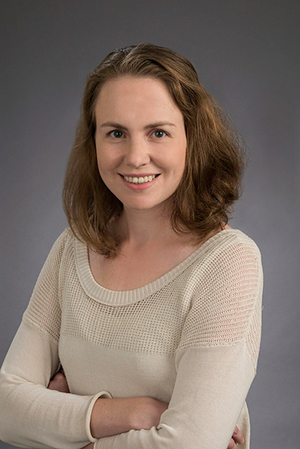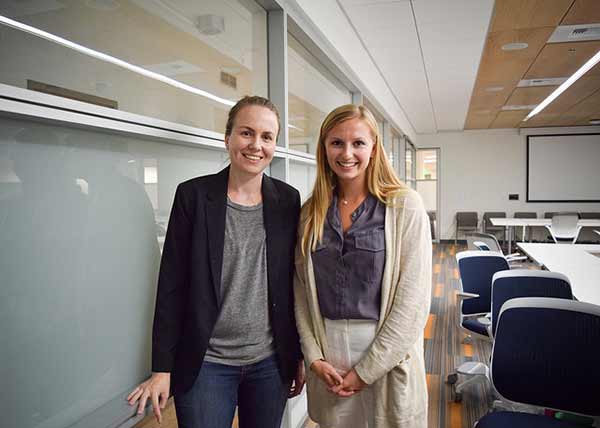By:
- Christine Clark
Published Date
By:
- Christine Clark
Share This:

In honor of Women’s History month, This Week is featuring a series of stories highlighting UC San Diego female faculty, staff, students and alumnae and the difference they are making in the world
Kate Ricke

She works as… an assistant professor who holds a joint appointment at the School of Global Policy and Strategy and Scripps Institution of Oceanography. “My research bridges the natural and social sciences in a way that addresses climate policy questions,” Ricke said.
She is best known for… working on the climate effects and impacts of solar geoengineering proposals, which can be defined as intentionally blocking sunlight to cool the planet, and groundbreaking work on calculating the country-level social cost of carbon. This research sheds light on how economic impacts of climate change get distributed among different geopolitical players.
The most challenging part of your career…“has been figuring out how to balance work and motherhood,” said the Minnesota native who earned a B.S. in earth science from the Massachusetts Institute of Technology and Ph.D. in engineering and public policy from Carnegie Mellon University. “My job would happily eat 100 percent of my time, if it could, and my daughter is exactly the same way. It is very hard to figure out how to make a large enough investment in my job that will allow me to accomplish everything I want to long term, while also giving my daughter the attention she desires and deserves from me at this point in her life.”
Advice you would give to other women trying to enter your field…“Identify good female mentors and get used to asking for their help when you need it,” she said. “Academia is a business that was designed for men and there are many repercussions of that. However, there are a lot of thoughtful people around that can help you. Women who have been through it and succeeded are the ones that are going be able to advise you on how to make it work, so you need to find those women as soon as you can.”
Making history in climate change research
Ricke led a study published in Nature Climate Change that was the first to provide a country-by-country breakdown of the social cost of carbon for 200 countries across the globe. The study revealed that global warming is costing the United States economy about $250 billion per year, which contradicts much of the previous research that focused on how rich countries benefit from the fossil fuel economy, while damages accrue primarily in the developing world. Her findings concluded that the top three counties with the most to lose from climate change are the United States, India and Saudi Arabia—three major world powers.
Geoengineering a greener future

Kate Ricke and her mentee, Meredith Fish, a graduate student at Scripps Institution of Oceanography
Geoengineering—the intervention in the Earth’s climate system to reduce the impacts of global warming—is controversial for its uncertain climate impacts and social feedbacks. Given the slow progress on greenhouse gas emissions reductions, scientists like Ricke work to develop frameworks for evaluating geoengineering as a part of a portfolio of potential solutions for our future global health. “There is no doubt that geoengineering is not a substitute for reducing emissions, but rather a complementary tool in adapting to climate change,” said Ricke. “Just like a portfolio of investments, you need to build a portfolio of climate risk mitigation tools.”
Among Ricke’s geoengineering research projects is one that evaluates the economic benefits from solar geoengineering. The research indicates that using geoengineering to cool the planet beneath present-day temperatures is projected to decrease global income inequality by accelerating economic development in the tropics.
Ricke was recently appointed to a study committee on geoengineering for the National Academies of Sciences, Engineering, and Medicine. The committee is designed to develop a research agenda for geoengineering and recommend research governance approaches for climate intervention strategies that reflect sunlight to cool Earth.
Share This:
You May Also Like
Stay in the Know
Keep up with all the latest from UC San Diego. Subscribe to the newsletter today.



